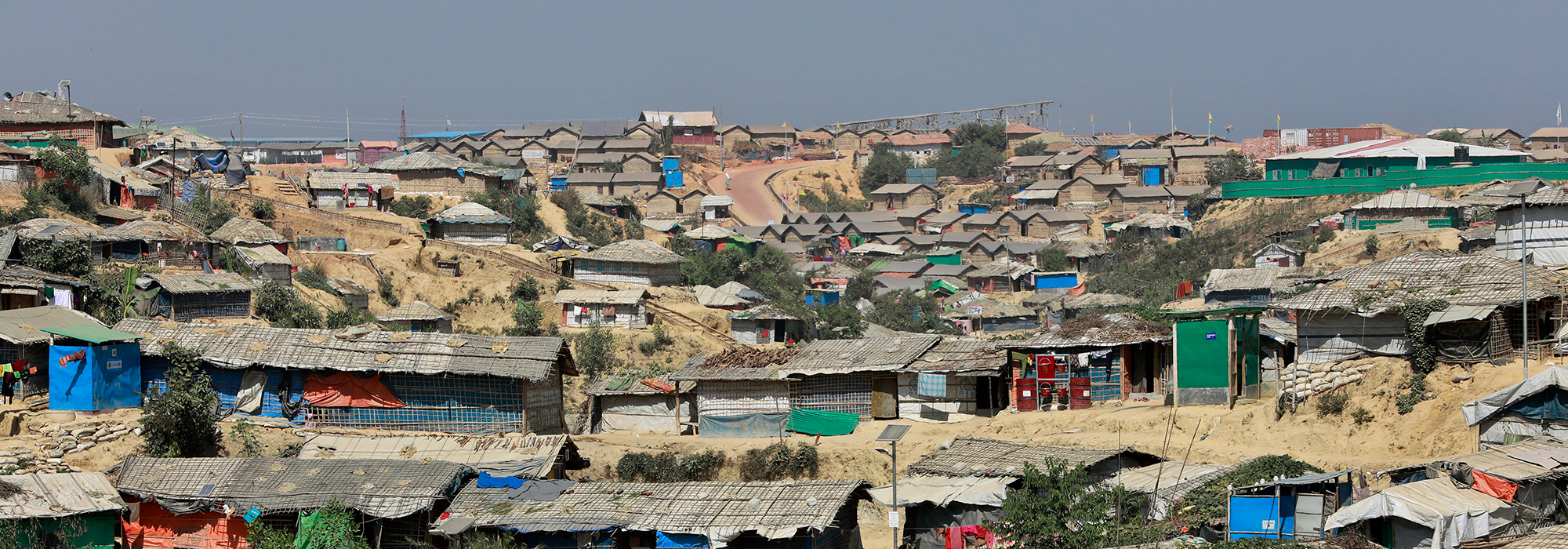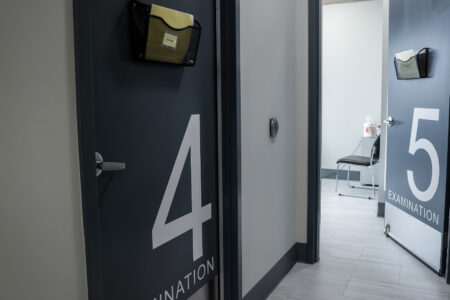
The Rohingya refugee crisis is unprecedented in scale. In the past two years, more than 745,000 people have fled from Myanmar to Cox’s Bazar in Bangladesh. More than 902,000 Rohingya refugees are now living in official and makeshift camps, and their return to Myanmar remains uncertain in the face of continued threats to their life and security.
Life in camps poses significant challenges in providing food, water, shelter, health care and education. While efforts to meet these needs must continue, humanitarian assistance is also turning to other types of needs, including access to justice. Refugee camps — just like any other community — are dynamic environments in which social interactions lead to a wide range of interpersonal conflicts over issues such as the corruption of camp officials, human rights violations, discrimination, property disputes and theft, and, most importantly, sexual and gender-based violence. Yet there is currently no structure to provide refugees with legal information or to address their legal complaints. Leaving everyday legal needs unmet has significant consequences for the refugees’ physical security and mental health, and for social cohesion in camps.
In our view, the solution is to establish front-line justice shelters to quickly provide legal services to Rohingya refugees. These shelters — a kind of judicial Red Cross — would be modest, accessible and focused on everyday legal disputes. Their goal would be to restore the basics of a functioning legal system, while building organically on local institutions and values. They would be based on three different types of intervention: information, mediation and safeguard orders.
The informational justice area would be the first point of entry into this system. Jurists drawn from the local community would triage the situations and determine the appropriate recourse, with the background support of international actors. This area would be equipped to provide information on a wide range of legal issues, with the objective of quickly resolving simpler problems. It could also organize public outreach events to disseminate legal information in the community. For matters requiring further assistance, the triage jurists would determine whether the problem is amenable to mediation or whether it is urgent enough to require safeguard measures.
Second, the mediational justice area would host experienced mediators who would provide a consensual and voluntary system of mediation, quickly and free of charge. Mediation processes should be designed and explained with reference to the Rohingyas’ traditional dispute resolution mechanisms, to the extent possible. Mediators should also be known and respected by their community and should be trained by international actors. Importantly, they should not impose solutions; rather, they should facilitate negotiation between the parties. For cases that are amenable to it, mediation has proven to be advantageous, since it usually reduces delays and costs, fosters relationships within the community by achieving “win-win” solutions and performs a pedagogical function that empowers people to prevent future conflicts.
Third, the safeguarding justice area would address matters that require urgent interim relief, such as injunctions. The judges operating in this area should be drawn from the people living in the camps, where possible: for instance, those who were judges or lawyers before being displaced. They should be empowered to grant orders for limited, renewable periods of time and only in urgent matters. This would be particularly helpful in cases of sexual and gender-based violence, in order to avoid the continuation of harm. Judges granting these orders should be supervised by international actors to avoid corruption and to ensure that basic human rights are respected.
Canada has a crucial role to play in establishing these justice shelters. Indeed, Avocats Sans Frontières (Lawyers without Borders) Canada, with the support of the Canadian government and other actors, has already developed a considerable expertise in front-line justice programs. Such programs, inspired in part by the model of justice shelters, have been implemented in Haiti, after the 2010 earthquake, as well as in Mali since 2012. This expertise would be helpful in developing a front-line justice system tailored to the needs of Rohingya refugees.
To be clear, local control and community participation are key features of successful justice shelters, with international actors playing only a background role. Fortunately, the foundations for justice shelters are already present in Rohingya camps. Camp committees have been established to deal with camp officials, and community leaders have been identified. Building from these leaders and committees will ensure that a front-line justice system truly addresses the community’s needs in a manner that reflects its culture and context. Centres have already been built in camps to provide other services to the population. These centres could also host justice shelters, to avoid taking up more space in an already crowded environment.
The legal needs of Rohingya refugees have been left unaddressed for more than two years. It is time for the Canadian government to draw on the expertise of our NGOs in order to put forward a solution to these needs. The seeds of change already exist in Rohingya communities; all we need to do is provide support and guidance for these seeds to grow into an effective justice system.
Photo: Balukhali Rohingya refugee camp at Ukhiya, Bangladesh, February, 2019. Shutterstock, by Sk Hasan Ali.
Do you have something to say about the article you just read? Be part of the Policy Options discussion, and send in your own submission. Here is a link on how to do it. | Souhaitez-vous réagir à cet article ? Joignez-vous aux débats d’Options politiques et soumettez-nous votre texte en suivant ces directives.











